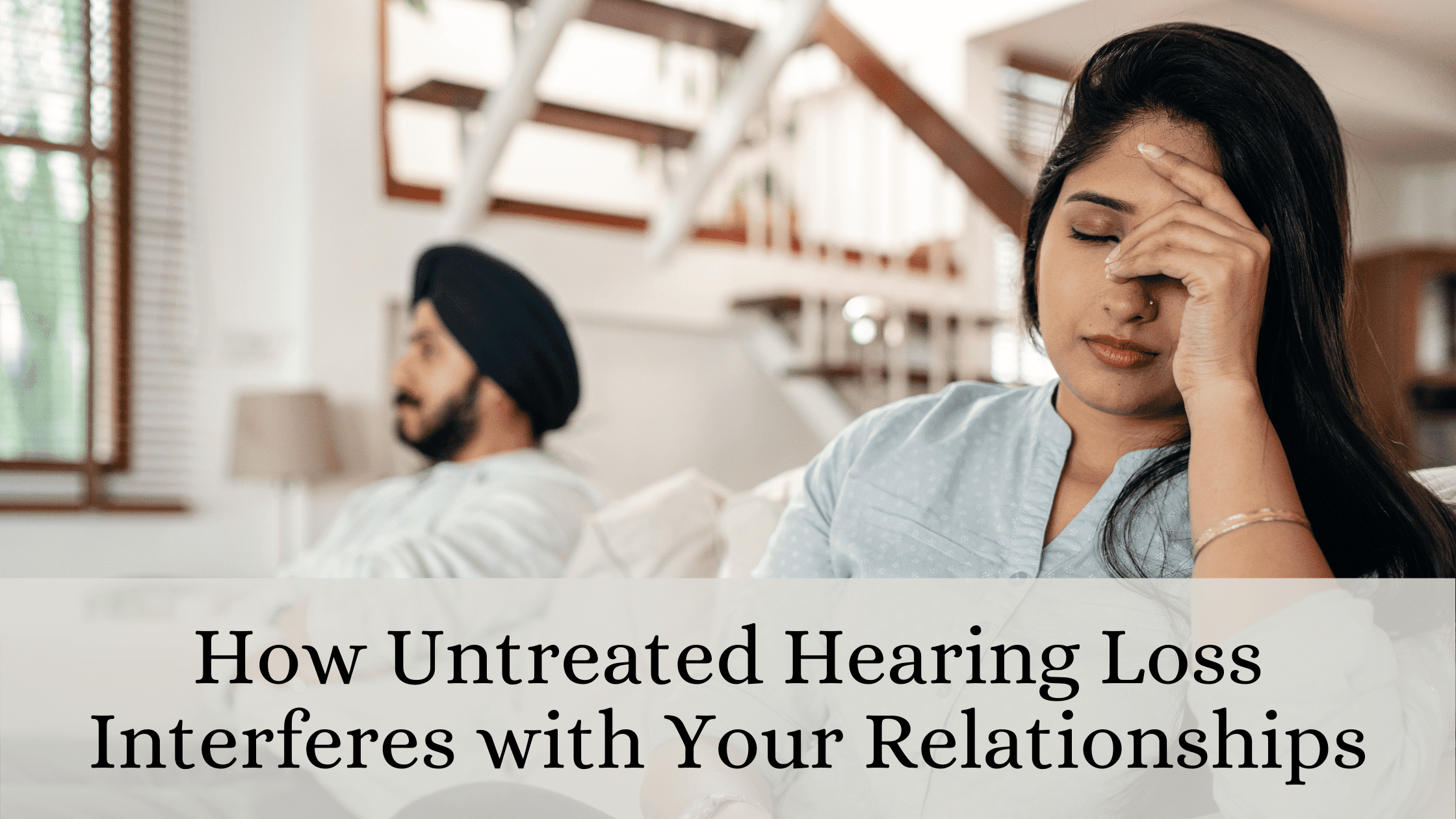- Volunteering for Hearing Health Causes - May 27, 2025
- Questions to Ask During Your Hearing Health Appointment - May 16, 2025
- Exploring Alternative Therapies for Hearing Loss - May 6, 2025
Hearing loss is one of the most common chronic health issues in America today. Despite the benefits of managing hearing loss with hearing aids, a large portion of those living with hearing loss don’t opt for treatment. However, hearing loss can take a huge toll on your quality of life and health if left unaddressed.
Hearing loss can seem like an intensely personal issue, and many people put off treating their hearing loss because of the perception that it doesn’t affect others – but this is actually far from true. Perceiving hearing loss as an issue that is solely your problem fails to acknowledge how important our sense of hearing is to our relationships and community.
When hearing loss goes untreated it can put stress on many things: our professional life, our mood and anxiety, our physical health, cognitive performance and our friendships and relationships. Often the people closest to you will likely be the most adversely affected by communication struggles related to hearing loss. These struggles can strain relationships, especially with those loved ones you live with or see every day.
Gradual Stressors
The way hearing loss can strain relationships is specific and subtle. While people worry that hearing loss limits their ability to communicate big ideas and important feelings, it also limits our engagement with small and everyday communication. Simple conversations such as a “How did you sleep last night?” or “Can you run to the post office today?” are a big part of how we engage with our spouses, partners and loved ones.
These normal conversations don’t seem all that important, but they are part of what builds intimacy and trust. Simple questions show we care about and rely upon one another. Unfortunately, this consistent communication can be disrupted by hearing loss. Untreated hearing loss can make comprehension a big problem and limits your ability to follow and contribute to everyday communication. Worse still, because hearing loss is most often gradual, these changes in responsiveness can happen without being directly noticed or acknowledged.
When hearing loss disengages you from others, negative emotions can establish themselves. Feelings of frustration and resentment can develop over time as communication challenges feel restrictive. Even within partnerships where hearing loss is acknowledged and accommodated, both parties often feel that hearing loss limits their communication.
The buildup of negative sentiments around communication issues can lead to bigger problems in a relationship. Both partners may come to feel isolated and misunderstood, even unloved, as everyday communication breaks down. If hearing loss is undiagnosed or unacknowledged, these relationship strains can be wrongly sourced to blaming a partner’s personality or behavior for creating rifts that are primarily driven by untreated hearing issues. Even partners who support their loved one with hearing loss may fail to recognize how hearing loss functions and what environments and situations are challenging.
Quality of Life
Problems related to untreated hearing loss often stem from how this disability stunts communication. Frustrations and misunderstandings can lead to estrangement from others and disengagement from our communities. All this feeds into three huge areas of risk for those living with hearing loss: depression, anxiety and isolation.
Depression is rooted in feeling misunderstood and unconnected to purpose and others, which can be spurred forth when hearing loss changes how we communicate. Anxiety can be caused by uncertainty and frustration, both of which are provoked when unaddressed hearing loss makes everyday environments harder to navigate and new situations seem daunting. Social isolation is significantly higher in populations with untreated hearing loss, rooted in how hearing loss can damage our closest relationships and provoke withdrawal from social situations.
These three quality of life factors can show up together or by themselves, but people with untreated hearing loss are at a much higher risk of experiencing a diminished quality of life.
Treating Hearing Loss
It can be discouraging to see how much hearing loss can diminish your closest relationships, but there are answers! While most hearing loss is permanent and cannot be reversed, it can be effectively managed by using hearing aids. Modern hearing aids are capable of providing nuanced, environment-specific hearing assistance and greatly improving comprehension and reducing the cognitive strain created by hearing issues. With clearer hearing, users can better connect to the people they care most about and better appreciate and share moments together – big and small.

